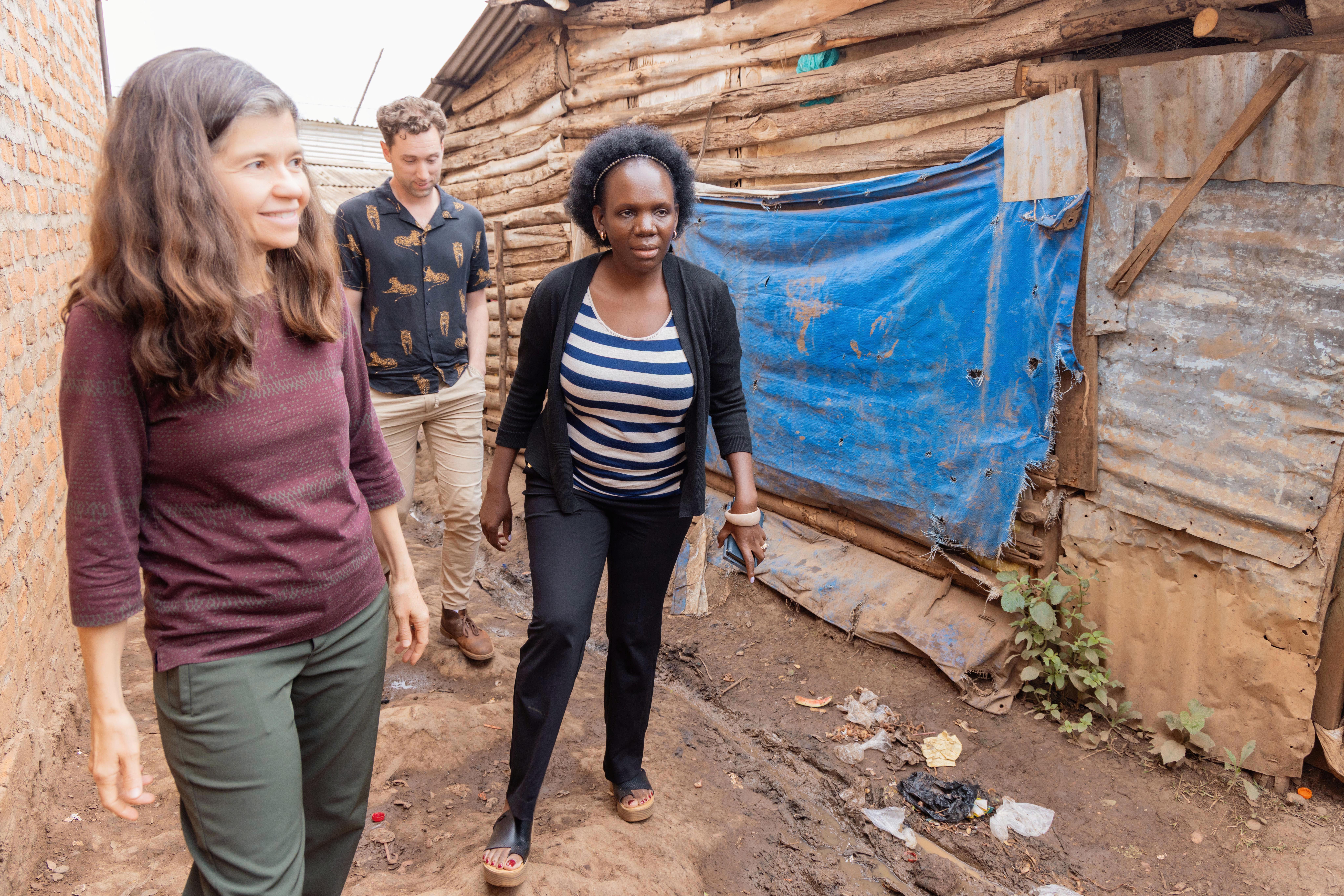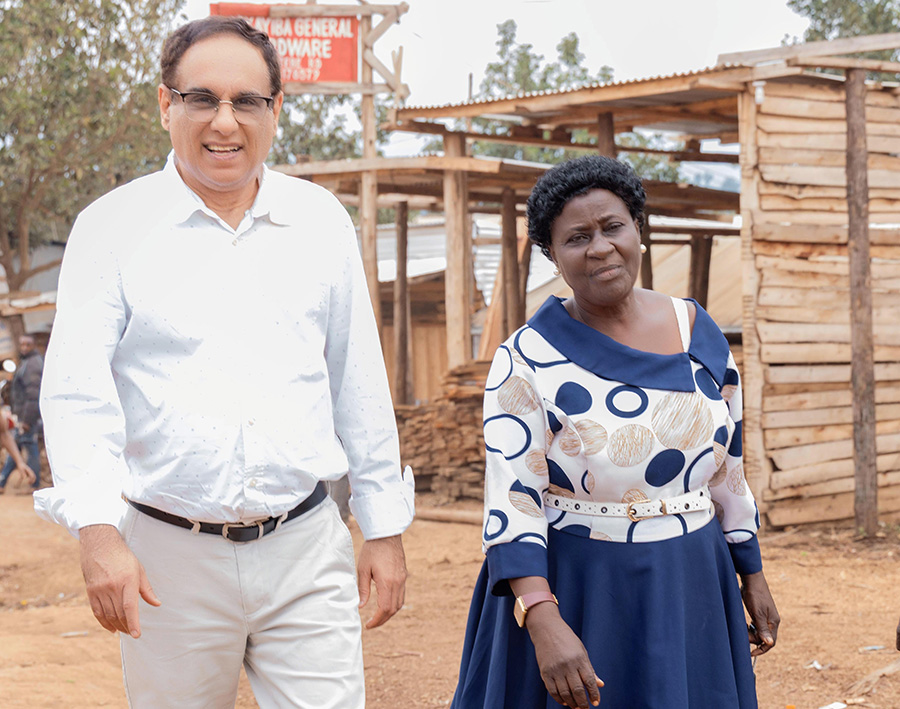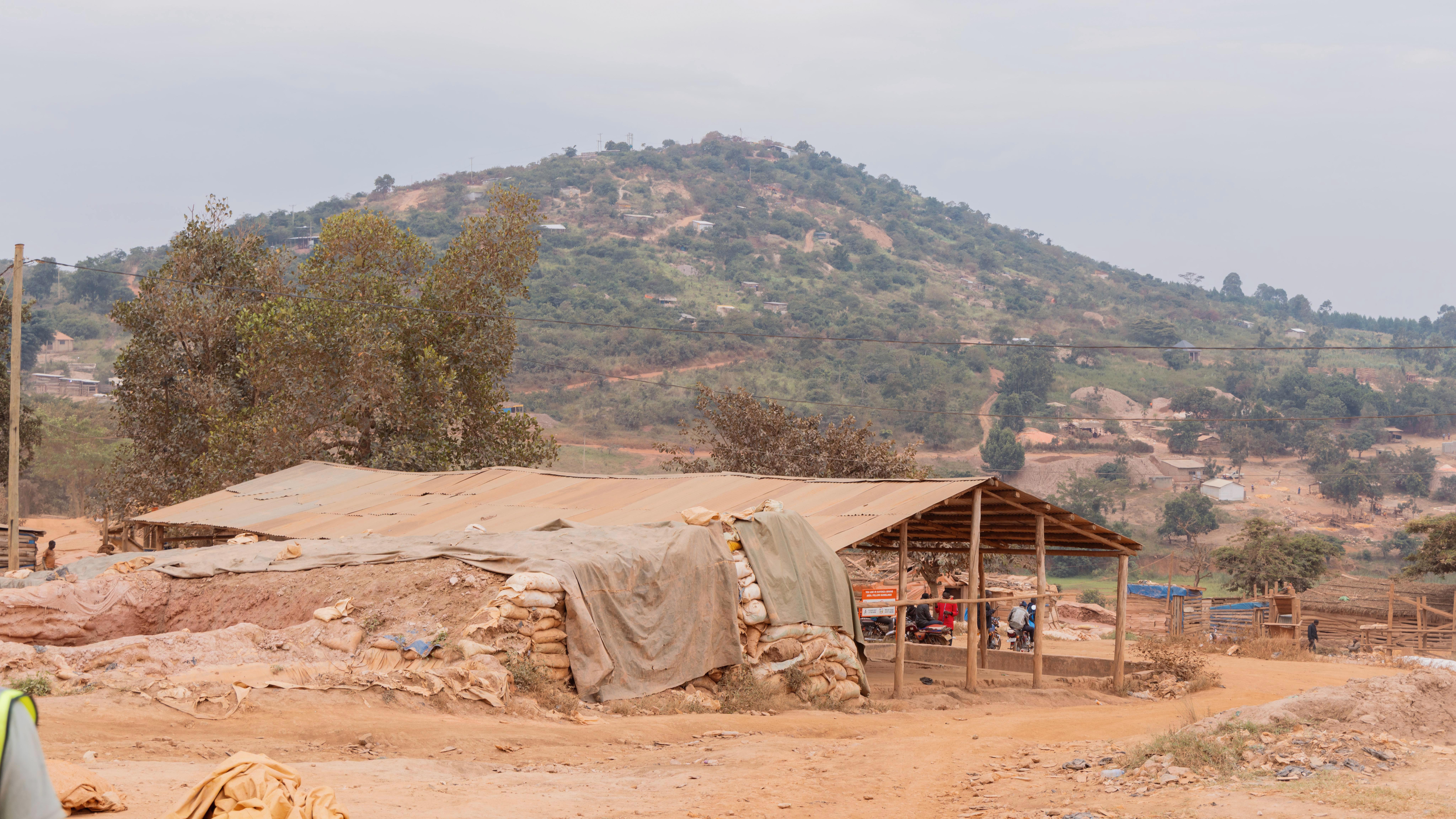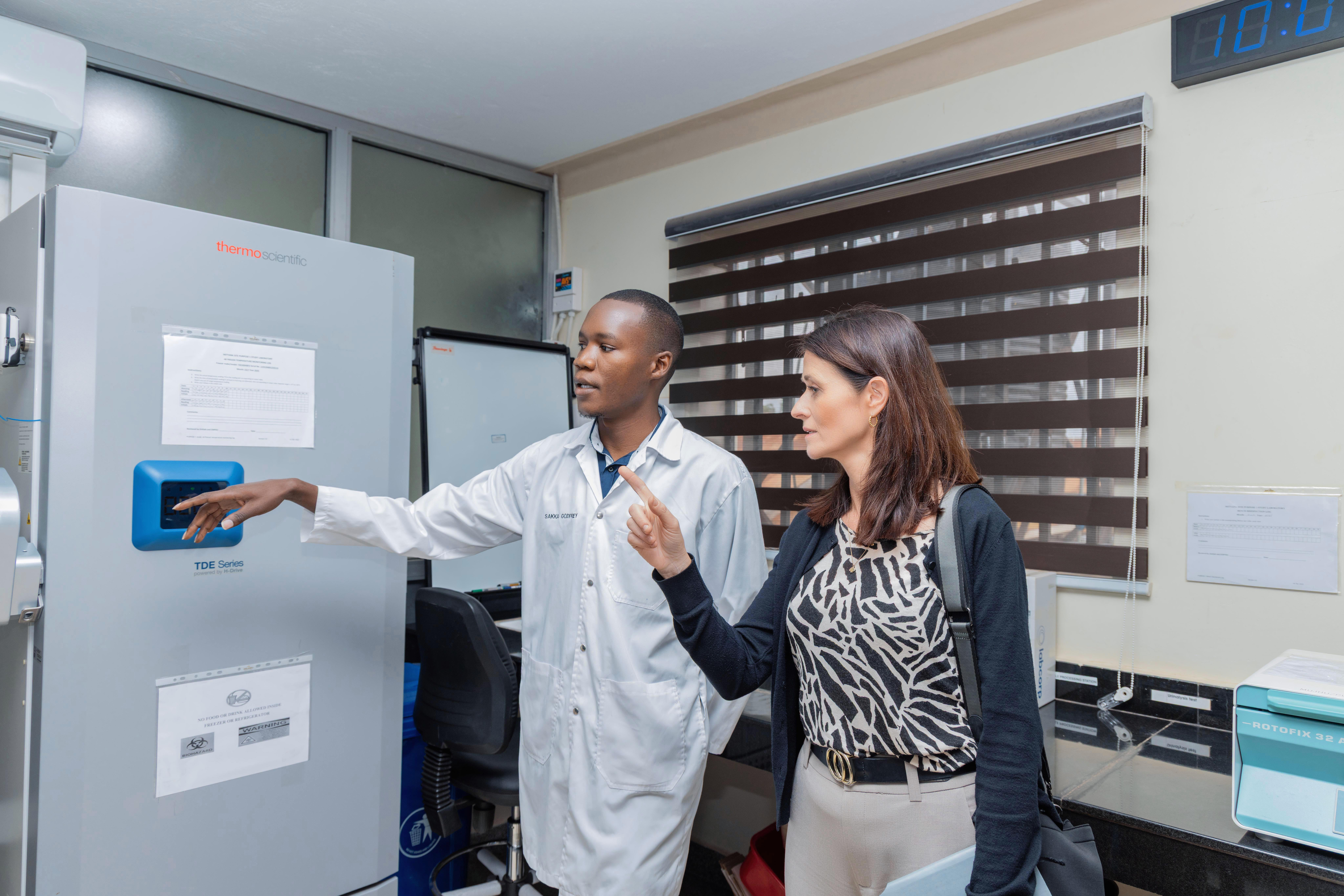Building trust and advancing inclusion: Our approach to clinical trials in Uganda
In Uganda, where women are disproportionately impacted by HIV, our community-based research prioritizes meeting patients where they are
November 24, 2025
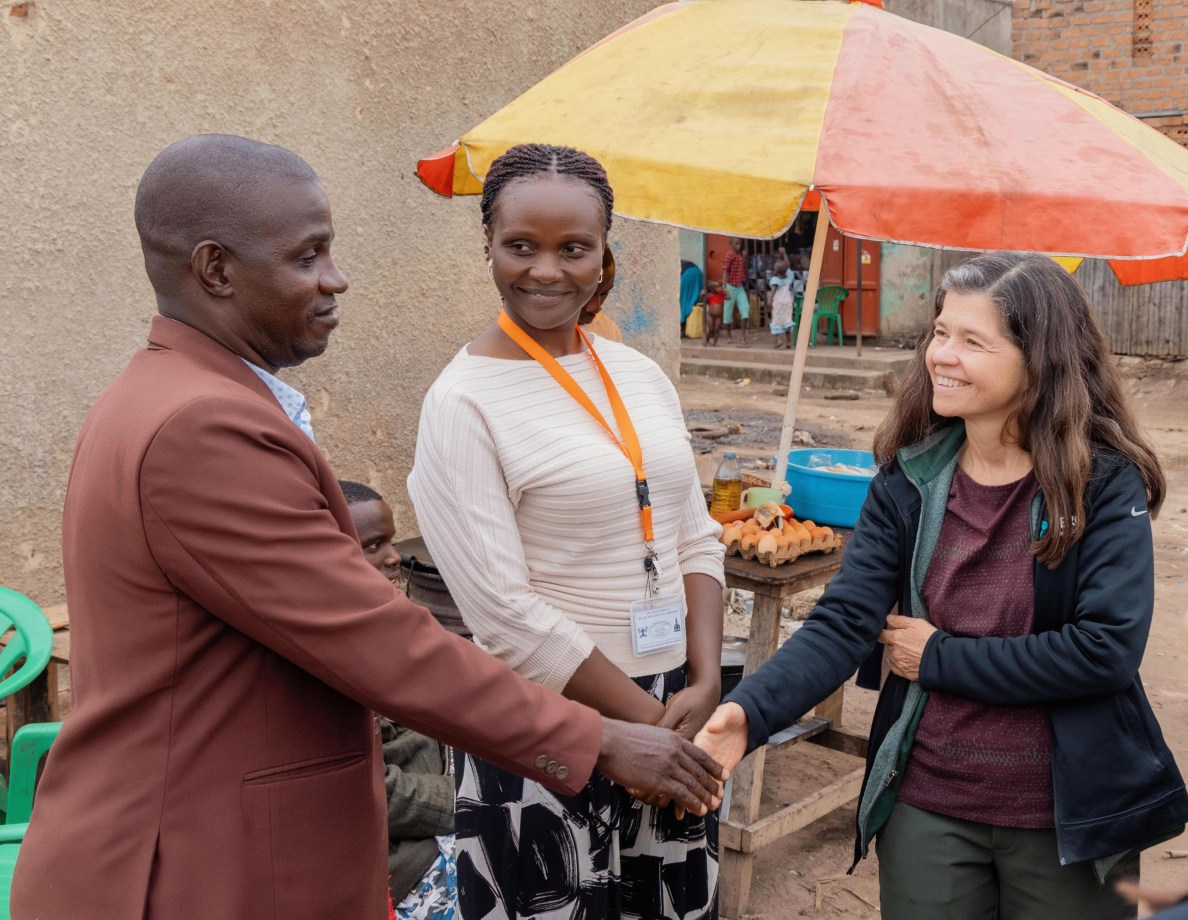
In sub-Saharan Africa, young women are three times more likely than young men to be living with HIV. Now, Merck researchers are part of a coalition of community leaders, academic organizations and NGOs working in Uganda to help ensure that clinical trials for investigational HIV medicines are designed to address this disparity — and to reflect real-world challenges in local communities. By focusing on local voices and expertise, the coalition aims to build trust, improve trial design, address barriers to study participation and engage directly with the community.
To learn more about how these efforts have shaped our HIV clinical trials in Uganda, we chatted with two members of our on-the-ground research team: Ian Bradley-Perrin, Ph.D., and Rebeca Plank, M.D., MPH.
Why is inclusion important in HIV clinical trials?
Plank: People may respond differently to the same medicine based on factors like age, gender, weight or ethnicity. By prioritizing inclusivity in HIV clinical trials, our goal is to develop treatment and prevention options that work for all people affected by HIV.
SEE ALSO: Dr. Plank shares her motivations and hopes for the future of HIV research
Why is it important to include women in HIV clinical research, especially in countries like Uganda?
Bradley-Perrin: Cultural expectations, gender roles and the still-too-common stigma surrounding HIV and sexual health can make it difficult for women in Uganda to take part in HIV prevention trials. Historically, women’s underrepresentation in these prevention clinical trials limited our field’s understanding of how these medicines work specifically for them.
Plank: We’ve made an effort to expand our HIV prevention clinical trials to include pregnant and breastfeeding women because there are limited late-stage data and safety information in those populations. So, it’s important to move in that direction of greater inclusivity in our trials with the goal of driving the research and development of investigational medications to make sure there are options women can access regardless of their plans for pregnancy. Today, many health care providers may be reluctant to prescribe medicines that have not been studied in pregnant and/or lactating women, and pregnant and/or lactating women may be reluctant to take these medicines.
What’s the role of local communities in HIV prevention clinical trials?
Bradley-Perrin: We’ve learned that strong collaboration is essential — and it’s been a real two-way learning process. Partners like the University of Washington’s International Clinical Research Center bring long standing experience running clinical trials in sub-Saharan Africa, and the Gates Foundation is providing strategic partnership and financial support for the operational needs of each clinical research site, including things like experienced research staff, upgraded facilities, and help building new clinics. Equally important is the Global Community Advisory Group: HIV prevention advocates with a country and global perspective who give critical input on trial design, recruitment materials and will advise on study operations throughout the trial. They give us honest feedback about community concerns and help keep us accountable and connected to people’s real lives and priorities.
For example, in Mityana, a rural district west of Kampala, our team collaborated with community leaders to support a local engagement strategy that helped identify locations where women have historically had trouble accessing HIV clinical trials, like fishing villages and gold mining communities.
Plank: By going out to a gold mine that was two hours from the clinic, I better understood the complexities of reaching this community, especially over the duration of a multi-year clinical trial. Transportation was a huge barrier that needed to be addressed to make sure women wouldn’t be hindered from participating because of where they lived or their access to transportation.
What are some other ways Merck is supporting clinical trial participants?
Bradley-Perrin: Along with transportation, we prioritized support services such as child care and, when needed, home visits to help women participate in the trials.
Plank: Thanks to the Gates Foundation, ICRC and our other partners on the ground, the clinical trial team has trained local staff, updated facilities and even helped to construct new research clinics that could be used for new research projects. These practical solutions aim to increase trial participation in geographies that need innovations the most and help address some of the practical challenges participants face.

